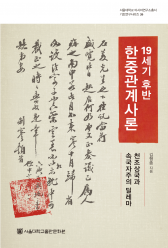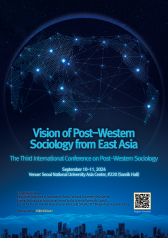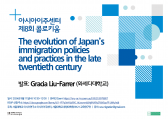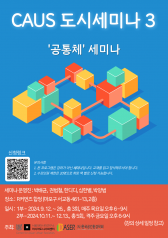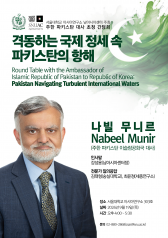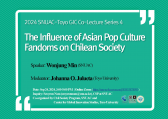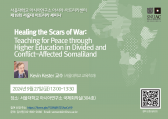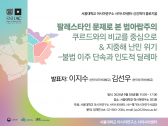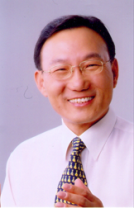|
[SNUAC] 2024 SNUAC WEEKLY (2nd Week of Sep)
|

|
|
|
| |
|
The book particularly organizes the characteristics of the diplomatic relationship between Joseon (Korea) and Qing in the late 19th century using the concept of “expedient diplomacy.” Qing, which regarded itself as the “Heavenly Empire” (天朝上國) and considered Joseon as a “vassal state,” was forced to accept the modern diplomatic system based on equal and independent sovereign states due to the challenges posed by Western powers after the mid-19th century. However, Qing, unable to abandon its attachment to the notion of being the “Heavenly Empire,” continued to seek “expedient” approaches that exploited the gaps between traditional tributary relations and modern diplomacy in its dealings with Joseon, which remained its last tributary state.
|
|
|
|
|
|
|
|
| |
SNUAC offers a visiting scholars fellowship to promote the exchanges of scholars at home and abroad interested in Asian studies and their cooperation with SNUAC.
Let us introduce the SNUAC visiting fellows for Fall 2024. |
|
|
|
| |
[Visiting Scholars] Yong-Ho Kim
Yong-Ho Kim, visiting scholar at Asia Center of Seoul National University is also concurrently serving as the Director of the Yun Po-sun Institute for Democracy, He is the former professor of Political Science at Inha University in Incheon, South Korea. He used to serve as National Election Commissioner of ROK from 2014 to 2020. He previously worked as Professor of Political Science at Hallym University(1998-2002) and Institute of Foreign Affairs and National Security (currently National Diplomatic Academy of ROK, 1990-1998). He used to serve as the President of the Korean Political Science Association during the year of 2006.
|
|
|
|
|
|
|

